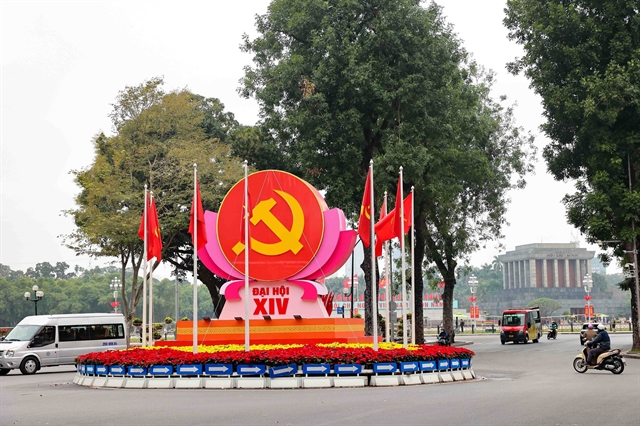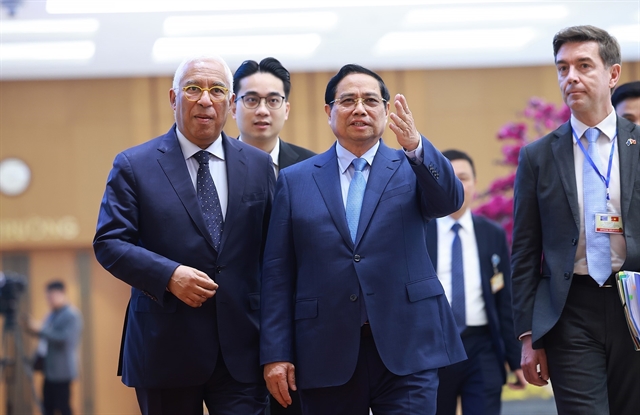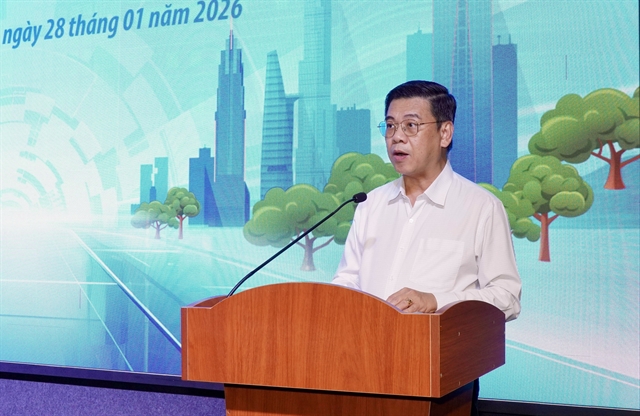 Society
Society
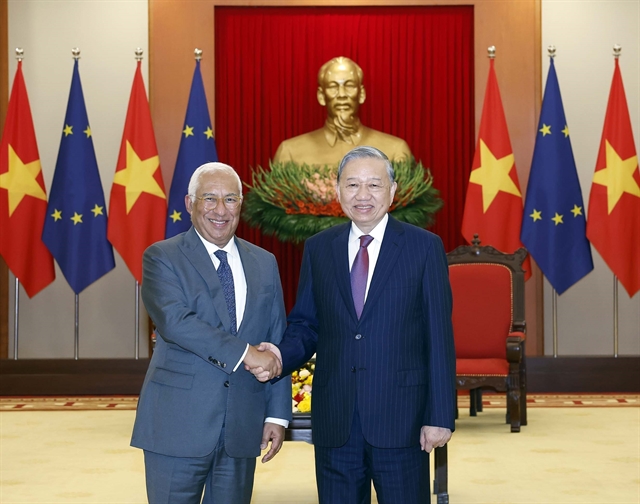
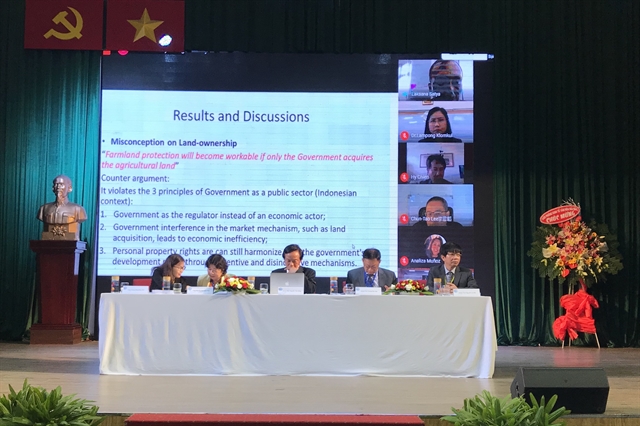
|
| Speakers at an international seminar on sustainable agriculture development organised by the University of Economics and Law in HCM City last Friday. — VNS Photo Bồ Xuân Hiệp |
HCM CITY — Global partnerships are needed to ensure food security amid the COVID-19 pandemic and address problems related to climate change, depleting natural resources and pollution, an international seminar on sustainable agriculture development heard in HCM City on Friday.
Prof Dr Nguyễn Tiến Dũng, rector of the HCM City University of Economics and Law, said sustainable agricultural development plays a strategic role in ensuring food security.
To achieve this, Việt Nam’s agricultural sector must improve productivity and quality, and identify export markets.
“Highly skilled labour and increased use of technology are also all needed.
“International co-operation is key to mitigating the pandemic’s impacts on global food trade and markets.”
The outbreak has affected both the lives and livelihoods of people around the world by affecting significant elements of both food supply and demand, he said.
Besides, the shortage of fertilisers, veterinary medicines and other inputs would affect output, he warned.
Though Việt Nam has been able to contain the outbreak, the situation remains unpredictable in other countries, making it a global problem requiring a concerted response to ensure food security, he said.
Drastic measures are needed to protect the most vulnerable, keep global food supply chains going and mitigate the pandemic’s impacts across the food system, he noted.
Strategies and policies are needed to realise the Sustainable Development Goals (SDGs) related to agriculture, he added.
Hoàng Xuân Sơn, a lecturer at the HCM City University of Economics, said billions of people are facing food shortages due to the COVID-19 crisis, and global warming is occurring rapidly.
Environmental pollution has worsened due to excessive use of pesticides and fertilisers, and severe pest outbreaks have a great impact on yields, he said.
To address the problems, greener and more sustainable agriculture is needed, he said.
“Green agriculture means low-emission agriculture and efficient and economical use of natural resources, ensuring social equity.”
Use of advanced technologies would result in bumper harvests, he said.
Along with the Government’s policies to develop green agriculture, the private sector also plays a key role in promoting the transition to green production in Việt Nam, he added.
Prof Hung-Yu Chien of Taiwan’s National Chi Nan University said the use of advanced technologies in agriculture sector would help enhance efficiency and economic growth and protect the eco-system.
‘The New Theory’
Speaking at the symposium, Dr Lampong KlomKul, director of the research, information and academic services division, ASEAN Studies Centre of Thailand, spoke about her country’s “New Theory” in agriculture, saying King Rama IX had found it to be the best way to help his people manage their lands.
It is practised at three levels, individual, community and national, with a focus on the effective management of farmlands to optimise its use, KlomKul said.
It specifies farmlands should be divided in a 30:30:30:10 proportion (30 per cent pond, 30 per cent paddy field, 30 per cent trees and crops, and 10 per cent for residential purposes), she explained.
It could ensure food security, sustainability and self-reliance, which helps farmers and the public to have a more positive attitude towards an occupation in agriculture, she said.
The theory has also been applied in other countries such as Lesotho, Bhutan and Jordan, she said.
The symposium also discussed best practices, policies, and strategies for sustainable agricultural development in Việt Nam and other Asian countries.
Other issues on the agenda included agricultural production system and agribusiness, demographic changes and production, consumption of agricultural products, labour market and income in the agricultural sector and agricultural finance.
The conference, titled ‘Sustainable Agricultural Development in Việt Nam - Experience of Asian Countries’, was organised by the Việt Nam National University’s University of Economics and Law, the Economists Club at the HCM City Union of Business Associations and Universitas Islam Indonesia.
More than 65 papers by authors from Việt Nam, Taiwan, India, Indonesia, Thailand, the Philippines, and Cambodia were submitted to the conference.
Of them, 51 were selected for presentation at the symposium after undergoing a peer-review process by the editorial committee.
Due to the pandemic, foreign presentations were done online while Vietnamese delegates attended the event in person. — VNS

